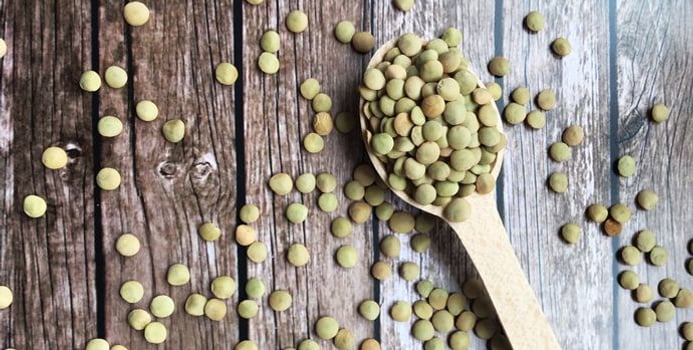Digestive issues are much more common that you might think, and many of the digestive problems people face on a daily basis are related to the foods they eat. If you have been diagnosed with irritable bowel syndrome (IBS) or think you may have it, you may benefit from avoiding FODMAPs.
What Are FODMAPs?
FODMAP is an acronym that stands for fermentable oligosaccharides, disaccharides, monosaccharides and polyols, all of which belong to a group of short-chain carbohydrates that are difficult to digest ... For some individuals, ingesting foods that contain FODMAPs can cause gas, bloating, constipation, diarrhea, and stomach pain. FODMAPs are found in varying amounts in a host of foods, including some fruits, certain vegetables, some grain products, milk, a few sweets, and couple other ingredients.
Following a low-FODMAP diet is typically recommended by physicians for people with IBS, but even if you haven’t been properly diagnosed with IBS and you suspect you may have it, it may be a good idea to try a low-FODMAP diet to see if it helps resolve some of your digestive symptoms.
Why Do FODMAPs Cause Stomach Issues?
Poorly-absorbed carbohydrates pass through your small intestine undigested. These tummy-trouble culprits then enter your large intestine where the bacteria residing there ferment them, releasing gas in the process.
Another reason FODMAPs can cause digestive problems is due to their osmotically-active nature, meaning they draw liquid into your intestine, which can cause diarrhea.
Which Foods Contain FODMAPs?
These Vegetables: Onion, garlic, leeks, cauliflower, broccoli, brussel sprouts, artichokes, beets, sweet corn, asparagus, peas, Portabella mushrooms, and button mushrooms.
These Fruits: Fresh pears, apples, stone fruits (peaches, apricots, prunes, nectarines, mango, cherries), blackberries, and watermelon, as well as all dried fruit, fruit juice, and products made with these ingredients.
Grains: Breads, cereals, tortillas, pastas, baked goods or other grain foods made from wheat, rye, or barley.
Dairy: Dairy products that are high in lactose—including regular cow’s milk, ice cream, cottage cheese, and ricotta cheese.
Sweets: Foods that are sweetened with or naturally contain sugar alcohols, such as mannitol, maltitol, xylitol, sorbitol, and isomalt. Sugar-free candies, gums, or other sugar-free foods that contain one of the preceding sweeteners are common offenders. Foods and beverages sweetened with high-fructose corn syrup, honey, or agave can also cause gastrointestinal distress.
Legumes: Beans, peas, peanuts, and soy milk.
Other Foods: Pistachios, cashews, rum, champagne, sherry, port, chamomile or fennel tea.
What Are Some Low-FODMAP Alternatives?
Vegetables: Any of the vegetables not listed above.
Fruits: Small servings of cantaloupe, honeydew, grapefruit, oranges, ripe bananas, pineapple, grapes, blueberries, raspberries, and strawberries.
Dairy: Non-dairy milks such as almond milk or cashew milk, as well as lactose-free dairy products (Lactaid). Aged cheeses and hard cheeses are typically well-tolerated for those with IBS because they have little to no lactose. Many people who generally have problems digesting FODMAPs can actually tolerate yogurt as well, because even though yogurt does contain lactose, it also contains probiotics, which can negate the effects caused by the lactose in the yogurt.
Grains: Rice, quinoa, cornmeal, millet, sorghum, and any breads, pasta, cereal, tortillas, or baked goods made from these grains are low-FODMAP alternatives. Oats in small portions are well-tolerated, as are sourdough breads made from any grain.
Sweets: Foods or beverages sweetened with a little bit of 100 percent pure maple syrup, sugar, or stevia.
Other Foods: Lentils, edamame, firm tofu, and any nut other than pistachios or cashews.
Who Should Try a Low-FODMAP Diet?
If you have been diagnosed with IBS, the first treatment your physician will recommend is a low-FODMAP diet. Oftentimes, people with IBS can avoid medication by simply choosing to avoid high-FODMAP foods.
If you think you may have IBS or you experience frequent digestive issues, try a low-FODMAP diet and see if your symptoms resolve. I suggest keeping a food journal and logging which foods cause symptoms and which foods you tolerate.
It is important to seek out fruits, vegetables, legumes, and whole-grains that are low in FODMAPs because these foods are loaded with beneficial nutrients, including disease-fighting fiber and phytochemicals.
[Image via Shutterstock]



